The stakes on HBO’s ‘The Gilded Age’ couldn’t be lower. What a relief
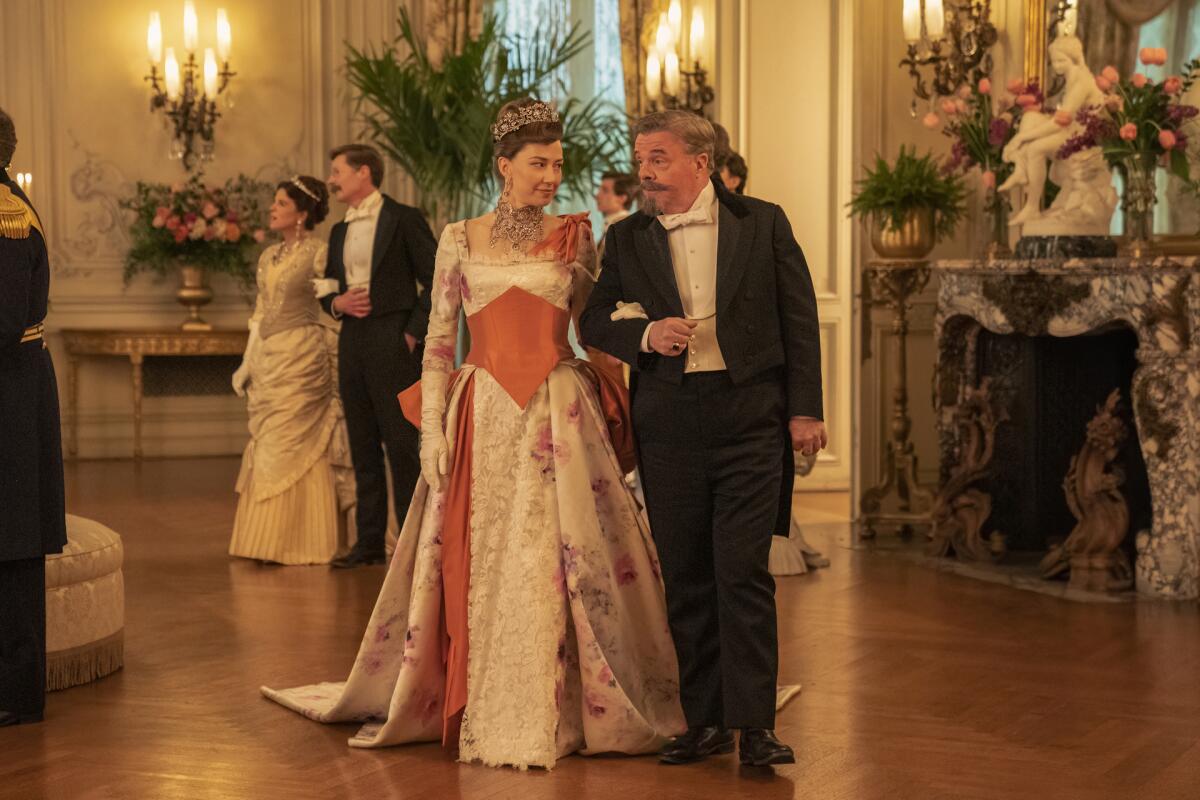
Welcome to Screen Gab, the newsletter for everyone who’s in the mood to escape into something silly this weekend.
As Screen Gab editor Matt Brennan writes in his recommendation for “The Gilded Age,” which returns for its second season on Sunday, this particular escape has its drawbacks — but the star-studded costume drama, set primarily in the drawing rooms and dining halls of 1880s Manhattan, is worth relishing for its exceedingly silly plot, especially if you need a news break.
Also this week, “Black Cake” showrunner Marissa Jo Cerar explains why she fears a post-strike contraction, TV editor Maira Garcia shares her love of “Beckham,” and yet another new twist on “The Challenge” makes its debut.
The complete guide to home viewing
Get Screen Gab for everything about the TV shows and streaming movies everyone’s talking about.
You may occasionally receive promotional content from the Los Angeles Times.
ICYMI
Must-read stories you might have missed
Long hours, low pay and mental trauma: Stars say reality TV is grueling and a union could help: As scrutiny mounts on reality TV, stars from Bravo’s “Real Housewives” franchises, “Love Is Blind” and “The Challenge” say the industry needs to change.
How the Israel-Hamas war is dividing Hollywood: For the entertainment industry, which has already been roiled this year by a bitter, historic double strike of writers and actors, the outbreak of violence has created a new set of fault lines.
For Native viewers, ‘Killers of the Flower Moon’ is an imperfect triumph: Osage and other Native American viewers who spoke to The Times have reservations about “Killers of the Flower Moon,” but say it’s a step in the right direction.
Demons, killer sloths, analog terror: The 13 best new horror movies to stream this Halloween: From supernatural scares to retro ’80s slashers and beyond, here are the 13 best new horror movies to stream this Halloween.
Turn on
Recommendations from the film and TV experts at The Times
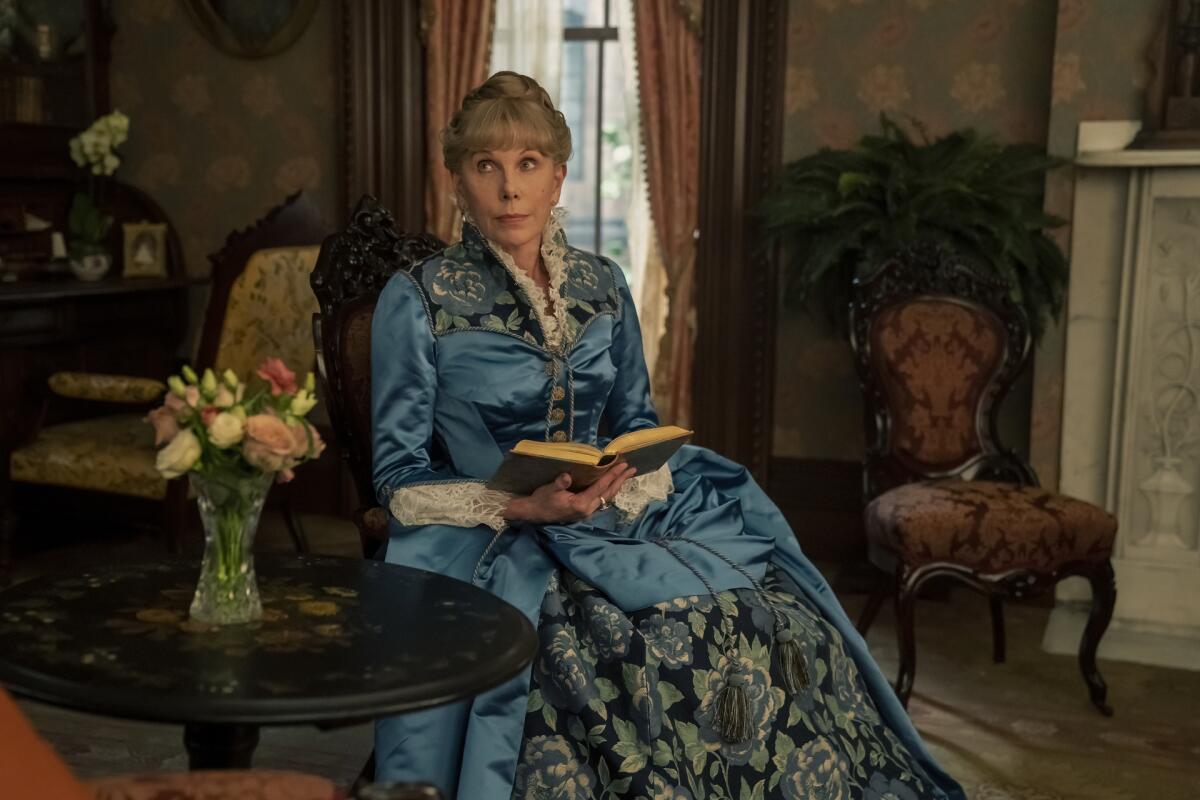
“The Gilded Age” (HBO, Max)
An American “Downton Abbey” knock-off with none of the original’s emotional resonance or sustained interest in the working classes, “The Gilded Age,” from “Downton” mastermind Julian Fellowes, doesn’t hold up under ideological scrutiny — particularly at a moment of heightened power for labor unions, its obsession with the rarefied world of New York society balls and Newport tennis in the 1880s might be called wealth-washing. And yet, against the better angels of my nature, I continue to devour HBO’s exceedingly frivolous confection, to the point that my guillotine is starting to collect dust. I live for pedigreed snob Agnes van Rhijn (Christine Baranski) sniping at her guileless sister, Ada (Cynthia Nixon). I crave ever more machinations from Agnes’ closeted ne’er-do-well son, Evil Twink Oscar (Blake Ritson), and lust after the van Rhijns’ robber baron neighbor, Daddy George Russell (Morgan Spector). I enjoy the detours into real-life New York history, from the politics of its 19th-century Black elite to the construction of the Brooklyn Bridge. And, like the main characters, I pay no attention to the servants.
Most of all, though, no class allegiance on God’s green Earth could keep me from loving Russell’s conniving, social-climbing wife, Bertha, played by Carrie Coon with such relentless conviction that you just may find yourself on the side of new money. It helps, of course, that the stakes couldn’t be lower: In Season 1, Bertha fought tooth and nail to get Agnes, and Mrs. Astor (a delicious Donna Murphy), to come to her house; in Season 2 they go to war over a gauche new entrant into the city’s arts scene: The Metropolitan Opera. —Matt Brennan
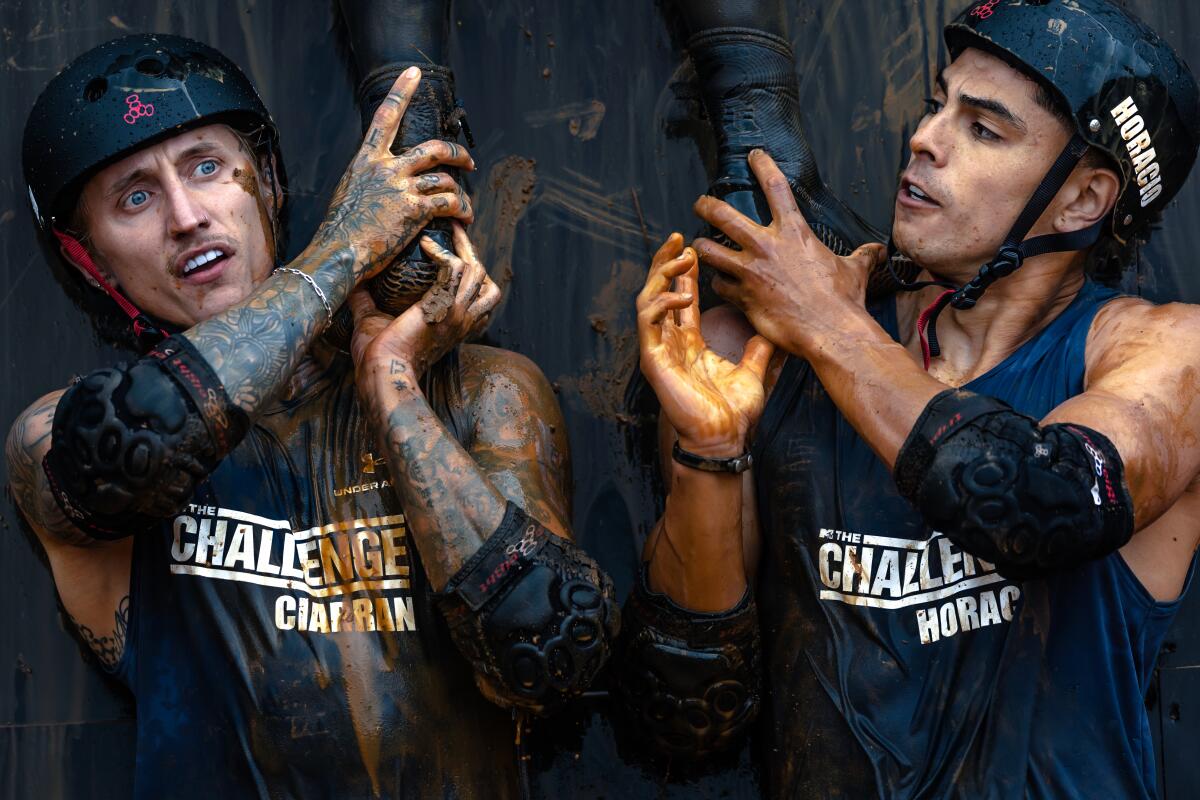
“The Challenge: Battle for a New Champion” (MTV)
This viewer’s favorite competition show is back for Season 39 with a fresh twist and a bit of the best of both worlds.
As its title implies, “Battle for a New Champion,” which premiered Wednesday, includes no previous “Challenge” champs, instead casting favorite non-winners from recent seasons. That includes some great competitors and fan favorites such as somehow-hasn’t-won-yet Zara, king of agility Emanuel, happy mini-Hulk Ed, stealth smart guy Kyland and good-at-everything-nice-guy Horacio. (My viewing companion goes quiet every time they show the latter shirtless … and this is the MTV original, not the sanitized CBS version, so they know on which side their bread is buttered.) There’s also plenty of dross, with lower-grade competitors cast for their reliable supply of drama. While these folks battle it out in a pretty clean game through the first few episodes, including one of the most dunderheaded elimination performances ever, they have no idea what kind of Mack-truck twist is headed their way: To get to the final stage, they’ll have to get through some of the franchise’s most storied champs, including Kaycee, Tori, Laurel, Jordan … and yes, CT. —Michael Ordoña
Catch up
Everything you need to know about the film or TV series everyone’s talking about
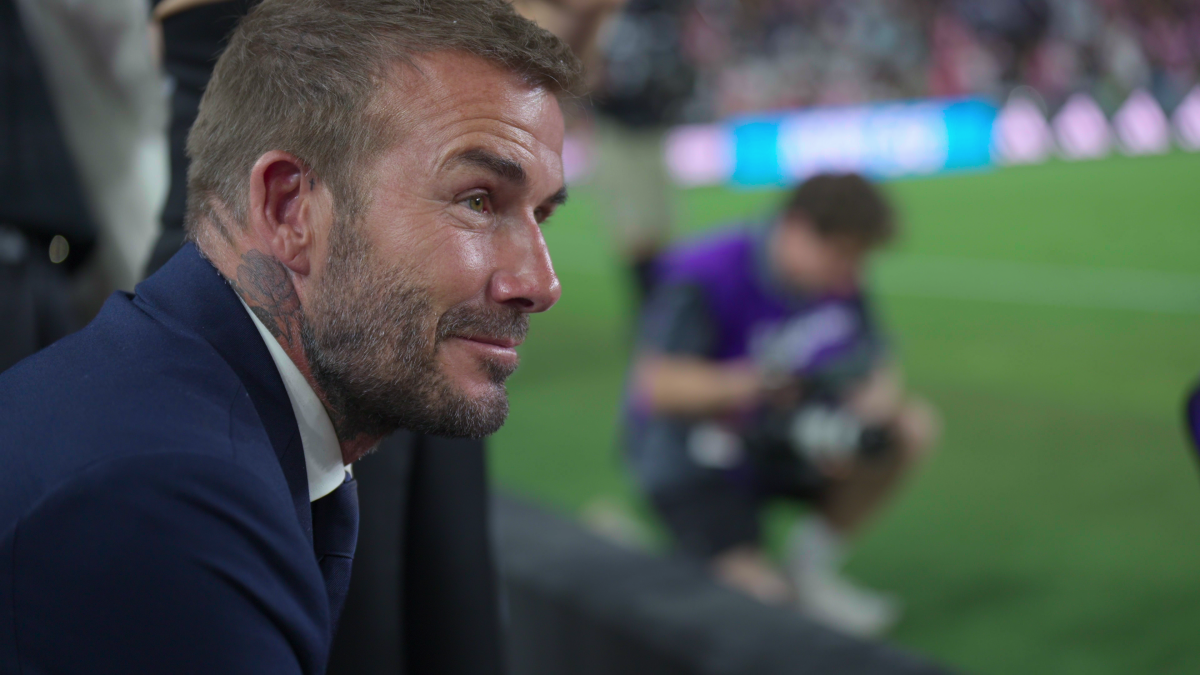
In the first half of the second episode of Netflix’s “Beckham,” you see scene after scene of David Beckham being booed and cursed: on the team bus, on the pitch, out in public trying to have dinner. The legendary football player (the word soccer isn’t uttered in this docuseries) bore the brunt of England’s wrath after he was blamed for the country’s elimination from the 1998 World Cup in a match against Argentina. It was the beginning of a horrid backlash that bled into his personal life. His then-girlfriend and now wife, former Spice Girl Victoria Beckham, was subjected to nasty chants about her at his Manchester United matches, and their infant son received kidnapping and death threats. Despite fans’ behavior, he rose above the ugliness and we see him lead his team to victory in the Champions League Final against Bayern Munich. He attributes his ability to deflect criticism to his father and he speaks of how Victoria’s support helped him through. As much as coaches, the media and the general public tried to place blame on his family for issues on the pitch, they were the ones who kept him centered. And while the docuseries focuses on his influence as one of the greatest to play the beautiful game, it’s also about the influence of family and how they shape us. —Maira Garcia
Guest spot
A weekly chat with actors, writers, directors and more about what they’re working on — and what they’re watching
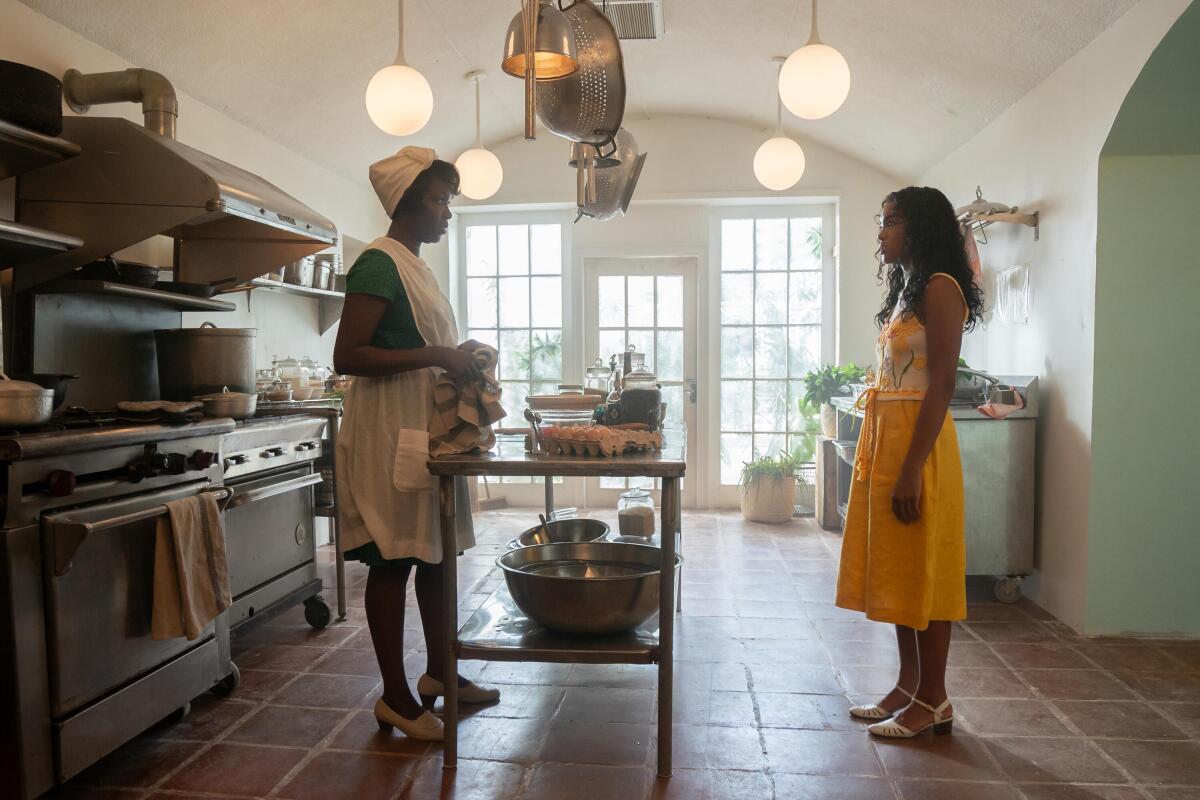
You couldn’t quite describe Marissa Jo Cerar’s new TV series as escapist: Though it showcases jaw-dropping locales from Jamaica to California to Scotland to Rome, “Black Cake” (premiering Wednesday on Hulu), based on Charmaine Wilkerson’s 2022 novel, is ultimately the story of estranged siblings Byron and Benny, who must sift through family secrets, including a murder mystery, in the aftermath of their mother’s death. Not that the showrunner, whose previous credits include “The Handmaid’s Tale” and “13 Reasons Why,” is any stranger to needing a break from the serious stuff: “Nearly everything I watch is a comfort watch,” she says. Cerar stopped by Screen Gab recently to discuss her fears of a post-strike contraction, what she learned about the Caribbean through “Black Cake,” and what she’s watching. —Matt Brennan
What have you watched recently that you are recommending to everyone you know?
I spent most of our Hot Labor Summer catching up on all the shows I missed while working on “Black Cake” for the past year and a half. I loved “The Other Two” [Max], the most satisfying laugh-out-loud experience I’ve had in years, and “Swagger” [Apple TV+] and “The Bear” for their authenticity and humanity. But if I’m being honest, the show I have probably recommended the most of late is “The Baby-Sitters Club” reboot on Netflix. I have an 8-year-old, and I struggled watching children’s programming… until we binged “The Baby-Sitters Club.” I was obsessed with the books as a child and now my child is reading the BSC graphic novels. We watched the series together and afterwards I told every cool parent I knew to get into it. I sobbed when they played the original series theme song during the Season 2 finale. Truly, I sobbed uncontrollably. The nostalgia hit me in a big way.
What is your go-to “comfort watch,” the movie or TV show you go back to again and again?
Nearly everything I watch is a comfort watch. So much of my work is deeply personal and emotionally taxing to write, produce, and edit, so when I get a chance to escape all of it, I slip under my weighted blanket, grab a bag of Twizzlers Pull & Peel, and turn on “RuPaul’s Drag Race” [Paramount+]. I’ve re-watched Seasons 5 and 6 at least five times. I love the show so much. It’s an incredible display of talent, heart and character development.
As far as movies, “Mommie Dearest” [Max] has been a go-to comfort watch most of my life. I love old Hollywood. I love camp, melodrama and deeply flawed female leads. I feel like I’m seeing it for the first time every time. It’s dark and upsetting, as is my other comfort watch, “There Will Be Blood” [Paramount+], but both masterpieces are enough of an escape for me. I’m sure a therapist would have many opinions about my answer, but it’s the truth!
“Black Cake” examines human ties between the Caribbean and the United States that are evident in everything from our neighborhoods to our vacation spots — but are rarely depicted on screen. In making the series, what did you learn about the connection that surprised or struck you the most?
I was surprised by how little I knew about the Caribbean and how little I was taught about the islands in high school and college. I was also surprised by the Chinese-Jamaican community. As a mixed-race woman with a mixed-race daughter, that discovery really drew me in when I read the book. And then when I went to Portland Parish, Jamaica, I saw it for myself and met all the amazing people in the community who were so hungry to see themselves on screen in a real way. I connected very much with my driver, Shane, who taught me about the real people of Jamaica. We discussed the culture, the politics, the rituals, the food — it was a bond that will last forever — and he taught me that the people of his community, the people portrayed in “Black Cake,” are eager to see themselves portrayed in nuanced fashions and to be the main characters of a mainstream story, rather than as part of the background.
Another thing that struck me about the book and what I tried to impart into the series is just how universal this story —and this family — is. It’s much broader than one community’s ties to the Caribbean. It’s about all of our ties to our ancestors. When we know where we come from, and by “we” I mean our parents, our communities, our country — when we understand what got us to the place where we sit today, we have a better understanding of why we do the things we do.
One thing that comes up in conversation regularly during this transitional moment for the industry is the fear that shows by and about underrepresented groups — women, people of color, LGBTQ+ people — will be disproportionately affected by a contraction. Coming out of the writers’ strike, what advice would you give up-and-coming writers about the challenges and opportunities they’re likely to encounter in this climate?
I share the same fears. This subject is a big part of the conversation in many of my circles and has been since Week 1 of the strike because historically our shows are the first to get axed. Apparently this happened in 2007, and all I can do as a showrunner now is continue to foster the careers of other writers on the margins. It’s something I take very seriously, and I’ve been searching myself for advice to offer my mentees.
I guess I would say to write your truth and put it in a killer sample, make your bio stand out to grab those of us who are staffing our writers rooms. I read my staff writer’s script because of her bio. It was one of dozens of submissions for “Black Cake,” but her bio stood out because it was personal, as was her script. She had never been staffed before, despite working as support staff on some big shows. She should have been given the opportunity to staff before “Black Cake,” but I am so glad that I read her bio and her work because she killed it on my staff and proved herself in a big way. I made sure she was given the opportunity to run set, just like I was doing when I was a staff writer 10 years ago. The only way we can bring up writers of color/writers from “underrepresented” communities is to train them. You have to put them on set, in casting, in all prep meetings, and in the editing rooms.
But I digress. Back to the question! I advise up-and-coming writers to reach out to the writers you admire and network in a sincere way. I know it’s hard, especially for us introverts, but if your intentions are sincere, you’d be surprised by the number of us who want to mentor and find opportunities for historically excluded/underrepresented writers. I’d also like to advise them to represent themselves as a full human rather than any number of labels or a box for someone to check.
The complete guide to home viewing
Get Screen Gab for everything about the TV shows and streaming movies everyone’s talking about.
You may occasionally receive promotional content from the Los Angeles Times.



